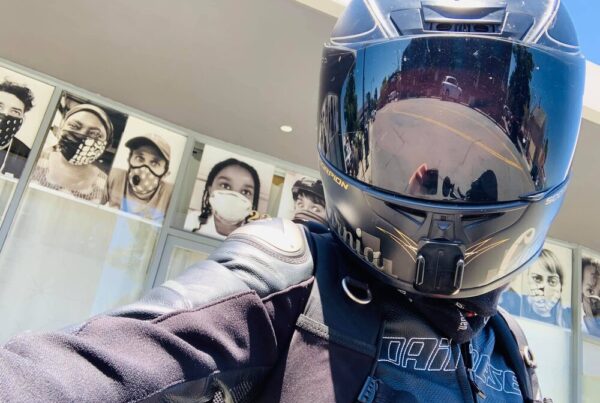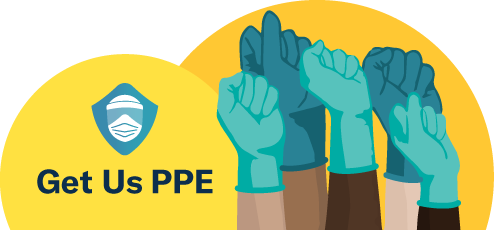By Grace Jin, a blog writer at GetUsPPE.org and health policy student at Yale University.
Most medical students were sent home when Covid-19 first ravaged hospitals around the country, but many have sought ways to help their future colleagues remotely. Suhas Gondi, MD/MBA student at Harvard Medical School, felt that “GetUsPPE provided an avenue to contribute by helping to keep those on the front lines safe—even if I can’t be beside them.” Gondi, along with Harvard medical students Adam Beckman and Tomi Ojo, joined GetUsPPE as some of its earliest volunteers and contributors to the grassroots effort. Other current and incoming medical students have begun volunteering with the organization since then, becoming crucial members of many teams at GetUsPPE, from data integrity to supply-demand matching, advocacy to communications.
Capturing the need
Gondi and Beckman are co-first authors of the latest GetUsPPE publication in The Lancet. The article, released May 14, 2020, analyzed extensive primary data from 6,169 healthcare facilities across the U.S. that registered their need on GetUsPPE.org. Publication in one of the world’s premier medical journals helps establish GetUsPPE’s database, Demand Data Hub, as an authoritative source of truth on the national PPE shortage. The results are undeniable—healthcare facilities battling Covid-19 face continuing and serious shortages of PPE. “We were struck by the diversity of groups that submitted requests for PPE,” commented Gondi, “many requests were from fire departments and non-medical facilities, including homeless shelters, detention centers, and correctional facilities, which we know have become hot-spots. Getting PPE to these organizations can prevent significant community spread of Covid-19 in vulnerable populations that are being disproportionately affected during this crisis.”
Connecting the dots
To address these gaps, GetUsPPE is using its robust database and fairness framework—our system for distributing PPE fairly, so it reaches communities that need it most—to match donated supply with healthcare providers facing shortages. The Data Integrity Team, staffed mostly by medical student volunteers and led by Galen Hu, incoming first-year student at New York University (NYU) Grossman School of Medicine, works to manually maintain, update, and ensure accuracy of the GetUsPPE supply and demand databases. The Data Integrity Team’s behind-the-scenes effort is a cornerstone of GetUsPPE’s mission to accurately understand, model, and dynamically address PPE shortages nationally.
Harvard Medical School’s Maahika Srinivasan, as well as two medical students from Brown University, Ben Pallant and Charlotte Lee, spearhead the Match Team. This arm of the organization connects individual and corporate PPE donors with high-need healthcare worker recipients in areas where GetUsPPE does not have active regional affiliates. Their team has facilitated the matching of over 288,000 units of PPE to date. Another Brown medical student, Vivian Chan Li, is part of the health equity team leading targeted outreach to vulnerable populations including Indigenous communities, nursing homes, and incarcerated populations, to assess their PPE needs and ensure equitable distribution.
Calling for action
In establishing GetUsPPE as a data-driven solutions leader, The Lancet publication also amplifies advocacy for evidence-based policies to resolve the PPE shortage crisis. Many GetUsPPE volunteers have mobilized to push for urgently needed federal action, including Tomi Ojo, a member of the Advocacy Team. The team initially organized around increasing production and distribution of PPE through the Defense Production Act (DPA). “We are currently building a coalition of physician-led organizations dedicated to advocating for equitable and transparent processes from the federal government as they try to bolster the medical supply chain,” said Ojo.
Beckman, also a Harvard Medical School MD/MBA candidate, said, “GetUsPPE demonstrates the power of people – and in particular, many students from different programs across the country – coming together to get things done.” Medical students are valued members of our large and diverse volunteer team, which includes physicians, software engineers, makers and artists demonstrating the power of collective action in times of crisis. Beckman said, “One of the leaders of GetUsPPE, Dr. Megan Ranney, has said numerous times, ‘Let’s make it happen.’ GetUsPPE is an astounding group of volunteers that takes those words to heart over, and over, at all hours of the day and night.”
We are grateful for all of our volunteers’ time, talent, and tireless efforts to help end the PPE shortage as quickly as possible.




